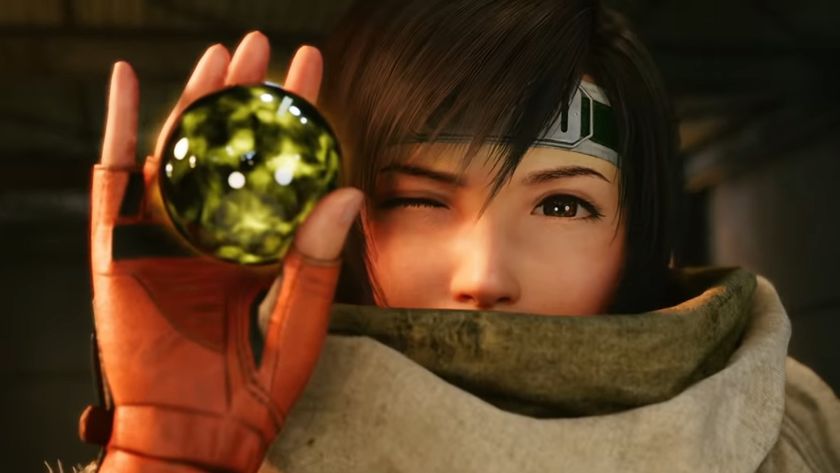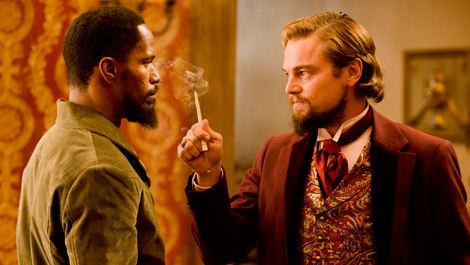Why you can trust 12DOVE
One of Django Unchained 's many teaser trailers showed a poster advertising a $2,000 reward for a train robber called Edwin Porter.
Cinephiles will recognise the name – Porter directed 1903's The Great Train Robbery , the first ever western, which you can view in its starchy, scratchy glory on YouTube.
What's most surprising is that, aside from the distracting frame-rate, not much has changed since then. If you've seen The Hobbit in 48fps, you'll barely even notice that.
In fact, Porter's basic pattern – crime comes to rural backwater, justice is bloodily done, innocence is lost – has held throughout the last 100-odd years.
So-called revisionist westerns (such as 1969's The Wild Bunch ) merely ended more messily, spaghetti westerns (the Dollars trilogy, 1964-66) made the white hats gray and took the action to Spain (but were made, confusingly, by Italians), while later efforts focused on ladies (1994's Bad Girls ), African-Americans (1993's Posse ) and, er, aliens (2011's Cowboys & Aliens ), but still paid their dues.
Like WW2 flick Inglourious Basterds (2009), Django sees Tarantino pulling apart the genre iconography and gluing it back together as a postmodern Franken-western.
As freed slave Django (Jamie Foxx) and his mentor, the bounty hunter Dr King Schulz (Christoph Waltz), take a picaresque tour of the antebellum Deep South, themes (and sometimes theme tunes) are borrowed from Sergio Corbucci, whose 1966 western Django spawned innumerable rip-offs; slave films like 1975's controversial Mandingo ; and blaxploitation-leaning oaters in the manner of 1973's Charley-One-Eye .
Django, it seems, is better connected than Kevin Bacon. At one point he takes Charley-One-Eye as his cover name; Charley-One-Eye starred Richard Roundtree; Richard Roundtree played Shaft; and Shaft is the surname of Django's lost wife Broomhilda (Kerry Washington).
While eagle-eyed viewers will spot SFX guru Tom Savini, even one-eyed charleys will note original Django, Franco Nero. “The 'D' is silent,” Foxx tells him. “I know,” is Nero's pithy response.
If what you've just read sends you into shuddering nerdgasm, prepare for a 165-minute treat; if not, just prepare.
As with QT's most self-conscious work, there are many bits that are great, and a few bits that aren't, as Tarantino the director remains unwilling to challenge the exuberance of Tarantino the writer. But then again, who could?
The first third of the film is among the most enjoyable – and best-looking – material QT has ever made.
Schulz has a jaunty German verbosity that fits Waltz like a glove (“I'm Doctor King Schulz and this is my horse, Fritz!” he beams).
Django causes witty havoc around the plantations in his blue Austin Powers suit, and together they make fools – or corpses – of all comers.
This culminates in the brilliant Ku Klux Klan scene, an early contender for funniest five minutes of 2013.
Broomhilda's trail takes Django and Schulz to Candyland, the home of francophile (which is not to say francophone) baddie Calvin Candie (Leonardo DiCaprio) and his comically grumpy head slave Stephen (Samuel L Jackson).
If, as has been suggested, DiCaprio nabs an Oscar nomination, it'll be for the campest, most racist character in Academy history, though he turns terrifying on a dime.
Stephen is, in many ways, even more despicable. We'd love to watch a ‘Calvin Loves Stephen’ spin-off. Sometimes it feels like we are.
Though Foxx has glowering charisma and great comic timing, Django sometimes seems like a background artist in his own story, and poor Broomhilda has barely 10 lines, though their love story resonates.
As two hours drift towards three, Django begins to feel overstretched, and the goodwill earned by QT’s exuberant directorial ticks (zooms, intertitles, anachronisms) are undone by a foolhardy cameo.
Just when things are getting too talky (but what talk, Candie and Schultz circling each other with malefic eloquence), squibby shoot-outs erupt.
These scenes have a ferocity to match the language – this is not a flick for the squeamish, or anyone upset by the “N” word, however accurate the context – and provide an exploitation-movie juxtaposition to the horrendous scars borne, silently, by the slaves.
Tarantino has expressed a wish to “deal with everything that America has never dealt with because it's ashamed of it, and other countries don't really deal with because they don't feel they have the right to”, but in the form of “genre films” rather than “big-issue movies”. Django certainly doesn't shirk these responsibilities, even if they aren't QT’s main concern either.
This a flick that's likely been played out over and over in its creator's head since time immemorial – hence the cameos, the hat tips, the relaxed runtime – and you get the sense that he's not trying to address anything so much as hang out in his own chapter of film history.
With a scenario this vivid, who can blame him?
Matt Glasby is a freelance film and TV journalist. You can find his work on Total Film - in print and online - as well as at publications like the Radio Times, Channel 4, DVD REview, Flicks, GQ, Hotdog, Little White Lies, and SFX, among others. He is also the author of several novels, including The Book of Horror: The Anatomy of Fear in Film and Britpop Cinema: From Trainspotting To This Is England.

Metaphor: ReFantazio wanted to fix the JRPG grinding problem, but Atlus went too far at one point and accidentally broke the whole combat system

Final Fantasy 7 Remake and Rebirth battle director says combining everything he learned on Monster Hunter: World with Square Enix's technology and unique skills created a "chemical reaction"

"Minutes after Palworld released," Pocketpair was already getting game pitches from "some really big names" before it even set up its own publisher: "No one has money at the moment"











